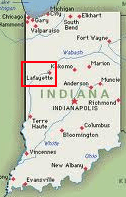 Rural Americans already depend on their satellite dish to receive hundreds of channels of television entertainment, but broadband over satellite has traditionally been slow, limited and very expensive.
Rural Americans already depend on their satellite dish to receive hundreds of channels of television entertainment, but broadband over satellite has traditionally been slow, limited and very expensive.
There is little evidence things will change quickly for those without access to traditional cable or phone company DSL. But the launch of new, higher capacity satellites, have at least increased satellite broadband speeds and eased back on extremely low usage caps under a provider’s “fair access policy.”
This week, Viasat’s Exede broadband pricing through DirecTV was formally announced. The “up to 12Mbps” service will cost:
- $39.99 for 10GB of monthly usage;
- $69.99 for 15GB;
- $119.99 for 25GB
These discounted prices are good for the first year of a two year contract. Prices increase $10 a month for the second year. Contract customers will have the $49.99 installation fee credited back on a future invoice.
There is one significant improvement: the satellite service removes the data cap between 12 midnight-5am daily – good for automated downloads, software updates and any other high bandwidth applications.
Customers have until Jan. 31 to sign up for the promotion.


 Subscribe
Subscribe



